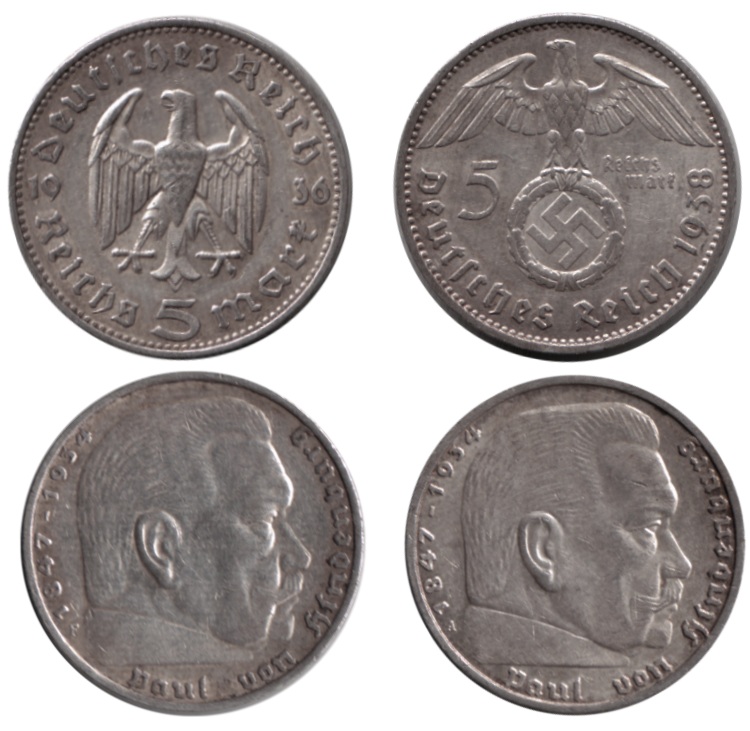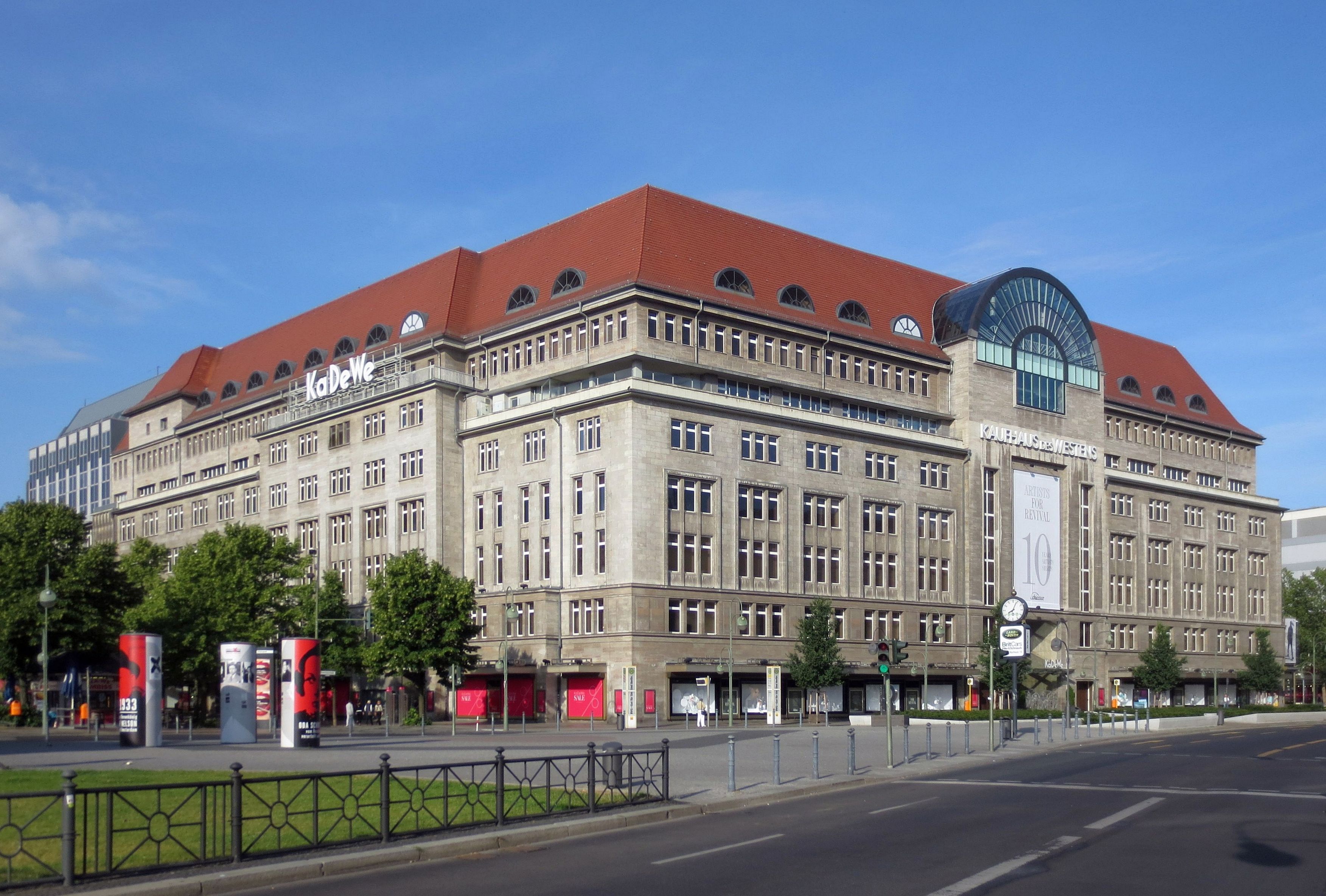|
Quelle (company)
Arcandor AG was a holding company located in Essen, Germany, that oversaw a number of companies operating in the businesses of mail order and internet shopping, department stores and tourism services. It was formed in 1999 by the merger of Karstadt Warenhaus AG, founded in 1920, with Quelle AG, founded in 1927. In 2005, the corporation had about 68,000 employees and annual sales of €15.5 billion. Its stocks were traded on the Mid Cap DAX until September 2009. The company's largest store was Kaufhaus des Westens (KaDeWe) in Berlin, and the largest store operated by Karstadt was in Frankfurt. Arcandor requested financial assistance from the German government, which was rejected by the European Commission on 3 June 2009. On 6 June 2009, the company announced it was no longer able to pay rent for its department stores, which the company had previously sold and leasebacked. Three days later, the company filed for bankruptcy. History On 14 May 1881, Rudolph Karstadt founded his f ... [...More Info...] [...Related Items...] OR: [Wikipedia] [Google] [Baidu] |
KaDeWe Berlin - June 2007
The Kaufhaus des Westens (), abbreviated to KaDeWe, is a department store in Berlin, Germany. With over of retail space and more than 380,000 articles available, it is the second-largest department store in Europe after Harrods in London. It attracts 40,000 to 50,000 visitors every day. The store is located on Tauentzienstraße, a major shopping street, between Wittenbergplatz and Breitscheidplatz, near the heart of former West Berlin. It is technically in the extreme northwest of the south Berlin neighborhood of Schöneberg. Since 2015, KaDeWe has been owned by the Central Group, a Thailand-based international department store conglomerate. History Empire and Weimar Republic: the Jandorf Era The businessman Adolf Jandorf had opened six stores for basic needs with his company ''A. Jandorf & Co.'' in Berlin by 1905. Like the competitor stores ''Wertheim Leipziger Strasse'' (1894) and the ''Warenhaus Tietz'' (1900), also on Leipziger Strasse, Jandorf wanted to cater for the h ... [...More Info...] [...Related Items...] OR: [Wikipedia] [Google] [Baidu] |
Georg Wertheim
Georg Wertheim (11 February 1857 in Stralsund – 31 December 1939 in Berlin) was a German merchant and founder of the popular Wertheim chain of department stores. Early years Wertheim grew up in Stralsund. After being an apprentice at ''Wolff and Apolant'', Wertheim along with his brother Hugo, took over in 1876 their parents' (Abraham and Ida Wertheim) haberdashery, founded in 1875. The two brothers quickly brought new ideas into the shop: customers were allowed to replace goods, the price of a good was no longer debatable but reliable, and purchases were made strictly with cash. This concept was successful, and after the opening of another branch in Rostock, the first branch in Berlin ( Rosenthaler Straße) was founded in 1885. Wertheim quickly realised the changing demand of the growing city in the period of industrialisation and in 1890 opened the first real ''department store'' on Moritzplatz/Oranienstraße in Berlin-Kreuzberg. The shop floor was more generous in siz ... [...More Info...] [...Related Items...] OR: [Wikipedia] [Google] [Baidu] |
Reichsmark
The (; sign: ℛℳ; abbreviation: RM) was the currency of Germany from 1924 until 20 June 1948 in West Germany, where it was replaced with the , and until 23 June 1948 in East Germany, where it was replaced by the East German mark. The Reichsmark was subdivided into 100 s (Rpf or ℛ₰). The Mark is an ancient Germanic weight measure, traditionally a half pound, later used for several coins; whereas (''realm'' in English), comes from the official name for the German state from 1871 to 1945, . History The Reichsmark was introduced in 1924 as a permanent replacement for the Papiermark. This was necessary due to the 1920s German inflation which had reached its peak in 1923. The exchange rate between the old Papiermark and the Reichsmark was = 1012 ℳ (one trillion in American English and French, one billion in German and other European languages and British English of the time; see long and short scale). To stabilize the economy and to smooth the transition, the Papierm ... [...More Info...] [...Related Items...] OR: [Wikipedia] [Google] [Baidu] |
NSDAP
The Nazi Party, officially the National Socialist German Workers' Party (german: Nationalsozialistische Deutsche Arbeiterpartei or NSDAP), was a far-right politics, far-right political party in Germany active between 1920 and 1945 that created and supported the ideology of Nazism. Its precursor, the German Workers' Party (; DAP), existed from 1919 to 1920. The Nazi Party emerged from the Extremism, extremist German nationalism, German nationalist, racism, racist and populism, populist paramilitary culture, which fought against the communism, communist uprisings in post–World War I Germany. The party was created to draw workers away from communism and into nationalism. Initially, Nazi political strategy focused on anti–big business, anti-bourgeoisie, bourgeois, and anti-capitalism, anti-capitalist rhetoric. This was later downplayed to gain the support of business leaders, and in the 1930s, the party's main focus shifted to Antisemitism, antisemitic and Criticism of ... [...More Info...] [...Related Items...] OR: [Wikipedia] [Google] [Baidu] |
Gustav Schickedanz
Gustav Abraham Schickedanz (1 January 1895 – 27 March 1977) was a German entrepreneur and Nazi party member who profited from the Aryanization of Jewish companies. Early life Schickedanz came from a modest background. After attending ''realschule'' in his hometown of Fürth, he absolved a commercial apprenticeship. In 1919 he married Anna Zehnder. He registered his first enterprise in 1923 and in 1927 registered the mail order company Quelle, later Europe's largest mail-order house. On July 15, 1929, his wife Anna and only son Leonhard were killed in an automobile accident in which he was also seriously injured. Only his daughter at the time, Louise, was unharmed. Career in Nazi era When the Nazis came to power in 1933, Jews were forced out of businesses. In 1935 Schickedanz, a Nazi party member, was involved in the Aryanization (or forced transfer) of the property of the Jewish businessmen Oskar and Emil Rosenfelder, acquiring for a low price the rights to the Tempo ... [...More Info...] [...Related Items...] OR: [Wikipedia] [Google] [Baidu] |
Quelle Logo
Quelle may refer to: People * Horst Matthai Quelle (1912–1999), German philosopher * Quelle Chris (born 1984), American rapper Other * Quelle (Bible), a collection of Jesus' sayings * Quelle station, in Bielefeld, Germany * Quelle-Kupferheide station, located in Bielefeld, Germany * Quelle, a German department store now part of Karstadt * Quelle AG, now part of Arcandor Arcandor AG was a holding company located in Essen, Germany, that oversaw a number of companies operating in the businesses of mail order and internet shopping, department stores and tourism services. It was formed in 1999 by the merger of Kar ... See also * {{disambiguation, given name, surname German toponymic surnames ... [...More Info...] [...Related Items...] OR: [Wikipedia] [Google] [Baidu] |
Wertheim (department Store)
Wertheim was a large department store chain in pre-World War II Germany. It was founded by Georg Wertheim and operated various stores in Berlin, one in Rostock, one in Stralsund (where it had been founded), and one in Breslau. It was Aryanized under the Nazis. Founding and early years In 1875, Georg's parents, Ida and Abraham Wertheim (who sometimes went by the name Adolf), had opened a modest shop selling clothes and manufactured goods in Stralsund, a provincial town on the Baltic Sea. An extensive network of family members ensured a low-priced supply of goods. In 1876, one year after the shop opened, the two eldest sons Hugo and Georg (aged 20 and 19 respectively), went to work in the shop following their apprenticeships in Berlin. Three younger sons later joined them. Expansion and growth The two brothers quickly brought new ideas into the shop: customers were allowed to replace goods, the price of a good was no longer debatable but reliable, and purchases were made strictl ... [...More Info...] [...Related Items...] OR: [Wikipedia] [Google] [Baidu] |
KaDeWe
The Kaufhaus des Westens (), abbreviated to KaDeWe, is a department store in Berlin, Germany. With over of retail space and more than 380,000 articles available, it is the second-largest department store in Europe after Harrods in London. It attracts 40,000 to 50,000 visitors every day. The store is located on Tauentzienstraße, a major shopping street, between Wittenbergplatz and Breitscheidplatz, near the heart of former West Berlin. It is technically in the extreme northwest of the south Berlin neighborhood of Schöneberg. Since 2015, KaDeWe has been owned by the Central Group, a Thailand-based international department store conglomerate. History Empire and Weimar Republic: the Jandorf Era The businessman Adolf Jandorf had opened six stores for basic needs with his company ''A. Jandorf & Co.'' in Berlin by 1905. Like the competitor stores ''Wertheim Leipziger Strasse'' (1894) and the ''Warenhaus Tietz'' (1900), also on Leipziger Strasse, Jandorf wanted to cater for the hi ... [...More Info...] [...Related Items...] OR: [Wikipedia] [Google] [Baidu] |
Nicolas Berggruen
Nicolas Berggruen (; born 10 August 1961) is a US-based billionaire investor and philanthropist. Born in Paris, France, he is a dual American and German citizen.Jeremy Kahn (October 25, 2011)''Bloomberg'' He is the founder and president of Berggruen Holdings, a private investment company and the co-founder and chairman of the Berggruen Institute, a non-profit, non-partisan think tank that works to address global governance issues. In 2014, through the Institute, Berggruen launched ''Noema Magazine'', formerly the ''WorldPost,'' a digital and print publication dedicated to exploring global issues. Early life and education Nicolas Berggruen was born in Paris, France. He is the son of art collector and dealer Heinz BerggruenBusinessweek: "Deep ... [...More Info...] [...Related Items...] OR: [Wikipedia] [Google] [Baidu] |
Thomas Cook Group
Thomas Cook Group plc was a global travel group, headquartered in the United Kingdom and listed on the London Stock Exchange from its formation on 19 June 2007 by the merger of Thomas Cook AG — successor to Thomas Cook & Son — and MyTravel Group until 23 September 2019, when it went into compulsory liquidation. The group operated as a tour operator and airline, and also operated travel agencies in Europe. At the time of the group's collapse, approximately 21,000 worldwide employees were left without jobs (including 9,000 UK staff) and 600,000 customers (150,000 from the UK) were left abroad, triggering the UK's largest peacetime repatriation. After the collapse, segments of the company were purchased by others, including the travel stores in the UK, the airlines, the Thomas Cook name and logo, the hotel brands and the tour operators. Thomas Cook India has been an entirely separate entity since August 2012, when it was acquired by Fairfax Financial and thus was not ... [...More Info...] [...Related Items...] OR: [Wikipedia] [Google] [Baidu] |
Thomas Middelhoff
Thomas Middelhoff (born 11 May 1953) is a German retired corporate manager. He was on the board of directors of Bertelsmann from 1990–2002, being CEO from 1998. From 2004 to March 2009, Middelhoff was chairman of the supervisory board of Arcandor (previously KarstadtQuelle), and CEO of the company. Background Thomas Middelhoff was born in Düsseldorf, Germany, the son of a textile businessman. He studied business at the University of Münster and received his doctorate at the Institute for Marketing under the supervision of Heribert Meffert. While at university, he was already working in his father's textile business. After graduating he was given a high post in the company. Bertelsmann (1986 - 2002) In 1986 he moved to Bertelsmann, a multinational media corporation based in Germany, as assistant manager of the graphic firm in Gütersloh. In 1990, he became a member of the board of directors of Bertelsmann. Middelhoff recognized the potential of the new digital media early. He ... [...More Info...] [...Related Items...] OR: [Wikipedia] [Google] [Baidu] |





